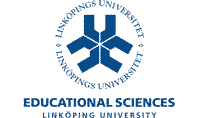|
|
| |
| SYLLABUS |
| Theories of Research and Methods of Inquiry ,
15 ECTS Credits |
| |
COURSE CATEGORY Single Subject Course
MAIN FIELD OF STUDY Pedagogik - PEA
SUBJECT AREA
|
|
COURSE CODE |
|
917A16 |
|
| AIM OF THE COURSE |
After completion of the course students should give evidence of:
• deeper knowledge and understanding of scientific and methodological concepts and techniques and how these can be applied in scientific investigations of authentic natural and outdoor environments
• a developed ability to analyze critically and produce scholarly texts relating to the natural and outdoor environments of the outdoor educational field of knowledge
• increased knowledge of different intellectual traditions, both theoretical and in practical action. |
| CONTENTS |
The course is laborative and experimental, emphasizing the interplay between practical know-how in authentic natural and outdoor environments and its importance for learning. The course deals with theories of research based on scientific, biological, ecological, cognitive and human ecological foundations in the field.
In connection with the above theories of research, both quantitative and qualitative methods of analysis are treated as well as scientific and hermeneutic methodology. In addition the course elucidates the effect of values on the research process in the choice of objects of research and methods.
Central to the course is further how scientific problems are formulated and how scientific work is communicated through reflection in action.
|
| TEACHING |
| Instruction mainly takes place in outdoor environments with the natural landscape as point of departure. Forms of work are varied and comprise teaching in the outdoor landscape, experimental field studies and field analyses, excursions, lectures, seminars, literature study, study visits, group work, individual work and self-instruction. |
| EXAMINATION |
Testing is done by reflective tasks in connection with the activities at each course meeting and with the course literature. These tasks are formulated in accordance with scientific and methodological concepts and techniques. Literature is examined in literary seminars. Examination takes place both individually and in groups, and by both text-based and non-text-based tests with the natural landscape as a basis.
Students failing an exam covering either the entire course or part of the course two times are entitled to have a new examiner appointed for the reexamination.
Students who have passed an examination may not retake it in order to improve their grades. |
| ADMISSION REQUIREMENTS |
At least one year of full-time undergraduate studies. Documented knowledge of English equivalent to Engelska B/Engelska 6, i.e. English as native language or an internationally recognized test, e.g. TOEFL (minimum scores: Paperbased 575 + TWE-score 4.5, internetbased 90 TWE-score 20), IELTS, academic (minimum score: Overall band 6.5 and no band under 5.5), or equivalent. |
| GRADING |
|
| CERTIFICATE |
| Course certificate is issued by the Faculty Board on request. The Department provides a special form which should be submitted to the Student Affairs Division. |
| COURSE LITERATURE |
|
The course literature is decided upon by the department
in question. |
| OTHER INFORMATION |
Planning and implementation of a course must take its starting point in the wording of the syllabus. The course evaluation included in each course must therefore take up the question how well the course agrees with the syllabus.
The course is carried out in such a way that both men´s and women´s experience and knowledge is made visible and developed. |
| |
Theories of Research and Methods of Inquiry
Theories of Research and Methods of Inquiry |
| |
Department responsible
for
the course or
equivalent:
IKK - Department of Culture and Communication |
| |
|
|
|
|
|
| Registrar No: 242/07-41 |
|
Course Code: 917A16 |
|
|
|
| |
|
Exam codes: see Local Computer System |
|
|
|
| Subject/Subject Area : Pedagogik - PEA |
|
|
|
|
|
| |
|
|
|
|
|
| Level |
|
Education level |
|
|
Subject Area Code |
|
Field of Education |
|
| A1X |
|
Advanced level |
|
|
PE1 |
|
NA |
|
|
The syllabus was approved by the Board of Educational Sciences 2015-05-07
|
|
|
| |
